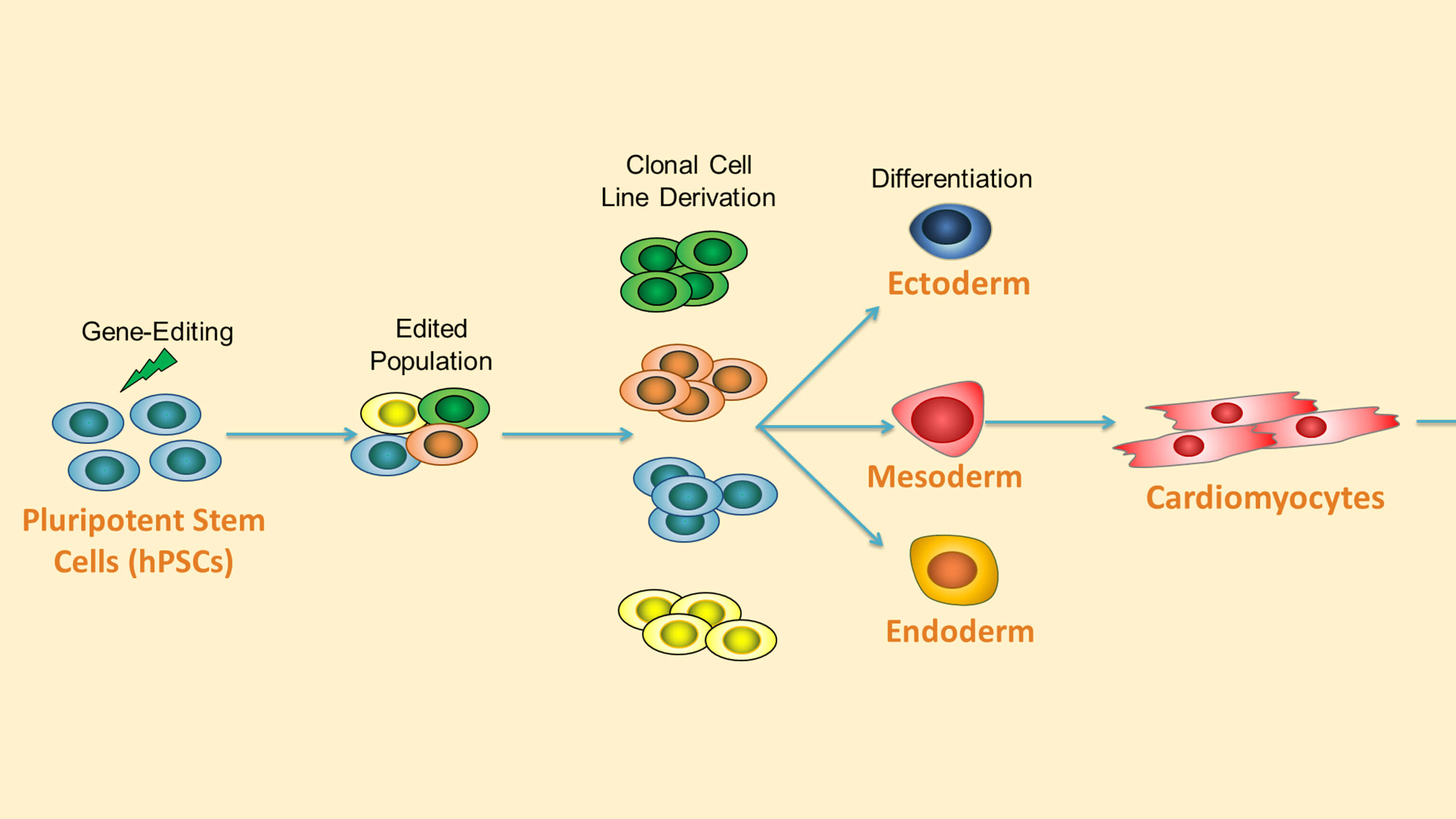Directed Differentiation and Disease Modeling
Human pluripotent stem cell (hPSC)-based models hold tremendous potential for studying human development and disease. Directed differentiation and disease modeling are two key methods for using hPSCs in drug discovery, cell therapy validation, and disease research.
- Directed differentiation of hPSCs refers to the in vitro differentiation of these cells toward a specific cell type through defined cell culture conditions. Directed differentiation is achieved by the addition of specific growth factors or small molecules.
- Disease modeling is an approach to study diseases using cells that display relevant pathological features. Disease modeling using hPSCs can be achieved by reproduction of a disorder-associated mutation with gene editing, isolation of embryonic stem cells (ESCs) from affected blastocysts; or generation of induced pluripotent stem cells (iPSCs) from patientsā€™ somatic cells.
Explore the resources below to support your disease modeling studies using hPSCs.
Highly Efficient Single-Cell Human Pluripotent Stem Cell Cloning and Robust Cardiomyocyte Differentiation
Recorded during the ISSCR 2017 Innovation Showcase in Boston, this tutorial highlights human pluripotent stem cell (hPSC) gene-editing and cardiac differentiation workflows using the CloneRā„¢ supplement and the STEMdiffā„¢ Cardiomyocyte System. This talk is presented by ŗŚĮĻ³Ō¹Ļā€™ Dr. Adam Hirst, scientist for pluripotent stem cell biology, and Dr. Vincenzo Macri, senior scientist for cardiomyocyte stem cell biology.
View Now >-
 How to Scale Up and Differentiate hPSCs in 3D Suspension CultureJoin ŗŚĮĻ³Ō¹Ļ scientists Tia Sojonky and Sarah McManus to learn all about hPSC scale-up and differentiation in 3D suspension culture. This webinar provides an in-depth look at advanced techniques for scaling up and differentiating hPSCs, with some practical tips for getting started and a 15-minute Q&A session that addresses some of the most pressing questions from the field.
How to Scale Up and Differentiate hPSCs in 3D Suspension CultureJoin ŗŚĮĻ³Ō¹Ļ scientists Tia Sojonky and Sarah McManus to learn all about hPSC scale-up and differentiation in 3D suspension culture. This webinar provides an in-depth look at advanced techniques for scaling up and differentiating hPSCs, with some practical tips for getting started and a 15-minute Q&A session that addresses some of the most pressing questions from the field. -
 Scaling Biomimetic Culture of Pluripotent Stem CellsHear from Dr. Maxime Feyeux, who discusses what the in vivo growth environment of pluripotent stem cells (PSCs) can teach us about in vitro culture. He summarizes some of the current challenges facing standard PSC culture technologies and shares a solution for mass producing high-quality PSCs for downstream applications.
Scaling Biomimetic Culture of Pluripotent Stem CellsHear from Dr. Maxime Feyeux, who discusses what the in vivo growth environment of pluripotent stem cells (PSCs) can teach us about in vitro culture. He summarizes some of the current challenges facing standard PSC culture technologies and shares a solution for mass producing high-quality PSCs for downstream applications.











